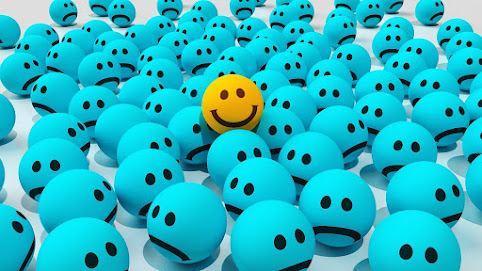The Evolution of Emoji: From Hieroglyphics to Digital Expressions
In
today's digital age, emojis have become an integral part of our online
communication. These tiny, expressive icons have evolved from simple smiley
faces to a vast and diverse set of symbols that help us convey emotions,
reactions, and ideas. In this blog, we'll take a journey through
time to explore the fascinating evolution of emoji, tracing their origins,
development, and cultural significance.
The
Birth of Emoji: Emojis, those little pictures and
symbols we use in text messages, emails, and social media, have a longer
history than you might think. They trace their roots back to ancient
civilizations. Early forms of emoji-like symbols can be found in Egyptian hieroglyphics
and ancient Chinese characters, which were used to convey messages and
emotions.
The
Rise of Emoticons: Fast forward to the digital age, and we
encounter the precursor to emojis: emoticons. These text-based representations
of emotions, such as :-) for a smile and :-( for a frown, emerged in the early
days of the internet. They were a simple way to convey feelings in the absence
of facial expressions.
Emoji
Emergence in Japan: The true emoji revolution began in Japan
during the late 1990s. Shigetaka Kurita, an engineer at NTT DoCoMo, created the
first set of 176 emojis as a way for users to convey emotions and information
more effectively on early mobile devices. The term "emoji" itself is
derived from Japanese words: "e" (picture) and "moji"
(character).
Unicode
Standardization: As emojis gained popularity, their
standardization became essential for cross-platform compatibility. In 2010, the
Unicode Consortium officially added emojis to its standard, ensuring that emoji
characters would display consistently across different devices and operating
systems. This decision marked a significant milestone in the evolution of
emojis.
Emoji
Diversity and Inclusivity: One of the most significant
advancements in the world of emojis is the push for diversity and inclusivity.
Emojis now come in various skin tones, gender options, and representations of
different cultures and lifestyles. This evolution reflects society's growing
awareness of the importance of representation and inclusion.
Do
you know How Google Got Its Name: A Misspelling with a Mission >>>>>>
The
Emoji Explosion: Emojis have gone beyond simple smileys
and expressions. Today, there is a vast and ever-expanding emoji library,
covering a wide range of emotions, objects, animals, and more. Users can find
emojis to express virtually anything, from food cravings to complex emotions.
Cultural
Significance of Emoji: Emojis have transcended language
barriers and become a global form of communication. They're used not only for
personal messaging but also in marketing, branding, and even in art and
literature. The influence of emojis on our culture is undeniable.
Emoji
Trends and Future Developments: The world of emojis
continues to evolve. New emojis are regularly added to the Unicode Standard to
reflect changes in technology, society, and pop culture. Emoji trends, such as
"emoji reactions" and animated emojis, are shaping the way we communicate
online.
The
evolution of emojis from ancient symbols to modern digital expressions is a
testament to the ever-changing landscape of communication. These tiny icons
have become a language of their own, helping us convey emotions and messages in
a fast-paced, digital world. As we move forward, emojis will likely continue to
evolve, reflecting our society's values and the way we connect with one another
online. Emoji enthusiasts and casual users alike can look forward to the
exciting developments that lie ahead in the world of emoji.
Also Read This:
Understanding the Science of Subcutaneous Pimples: Causes and Prevention
The Evolution of Jeans: A Journey from Workwear to Fashion Statement
Unlocking the Mystery of WD-40: The Secret Formula Revealed!
The Sky's Secret Weapon: Why Airplanes are Made of Aluminium










No comments